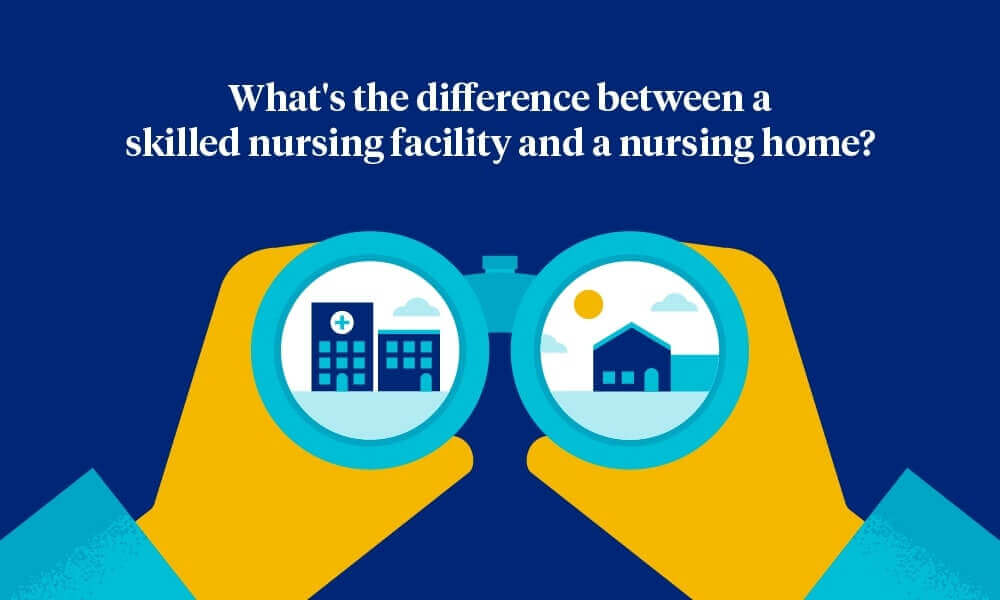What's the difference between a skilled nursing facility and a nursing home?
Published by Medicare Made Clear®

On the surface, a skilled nursing facility and a nursing home may look very similar. Some care facilities actually operate as both, with a separate floor or section of a building devoted to each.
The difference between a skilled nursing facility and a nursing home comes down to the care provided – skilled nursing care vs a nursing home level of care.
What is skilled nursing care?
Skilled nursing care is provided by trained registered nurses in a medical setting under a doctor’s supervision. It’s basically the same level of nursing care you get in the hospital.
Patients may go from the hospital to a skilled nursing facility to continue recovering after an illness, injury or surgery. In addition to skilled nursing, care may include rehabilitative services from licensed physical, occupational or speech therapists.
A skilled nursing facility provides transitional care. The goal is to get well enough to go home.
What is a nursing home level of care?
Nursing home care is provided mostly by licensed practical nurses and nurse aides under the supervision of a registered nurse. Care is focused on activities of daily living, like dressing, bathing and eating. This is often called “custodial care.”
People sometimes move to nursing home when they unable to take care of themselves due to medical, cognitive, behavioral or functional issues. In addition to custodial care, nursing home residents may get help taking medications or managing chronic conditions.
A nursing home provides long-term residential care. The goal is to provide a safe, comfortable and caring environment for people who are unable to live independently.
Does Medicare cover care in a skilled nursing facility or nursing home?
Medicare Part A covers up to 100 days in a skilled nursing facility after a qualifying hospital stay. The Part A deductible covers the first 20 days per benefit period. After that, you pay a share of the cost for each additional day of your stay. You would start paying the full cost after 100 days.
Medicare does not cover long-term custodial care in a nursing home, though Medicaid or private long-term health insurance may. However, Medicare does continue to cover medical care for nursing home residents.
About Medicare Made Clear
Medicare Made Clear brought to you by UnitedHealthcare provides Medicare education so you can make informed decisions about your health and Medicare coverage.
Get the latest
Boost your Medicare know-how with the reliable, up-to-date news and information delivered to your inbox every month.
*All fields required